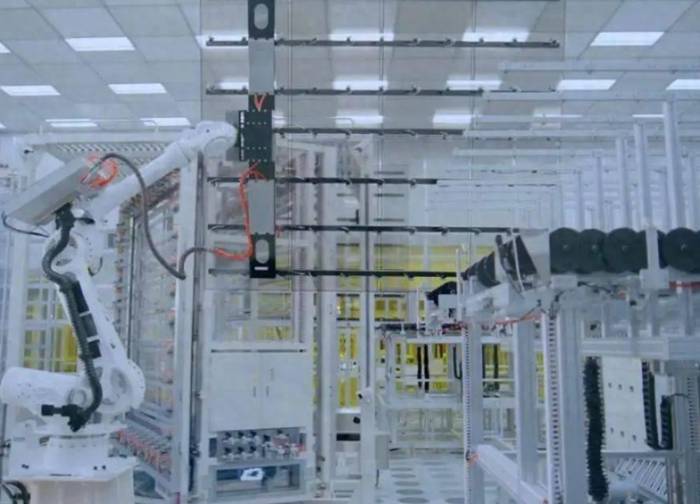Chinese Databases Surge with New TPC-DS Record
The database market is ushering in a new landscape.
In the 1990s, foreign manufacturers such as Oracle and IBM entered China, and since then they have been monopolizing the domestic database market for a long time, with their market share in China once exceeding 95%.
It was not until after 2010, with the rise of cloud computing technology, that cloud databases began to take the stage in history, giving domestic database manufacturers the opportunity to "blaze a new trail".
In recent years, under the promotion of the trust-creating policy, domestic databases have ushered in significant development opportunities.
In August 2022, the State-owned Assets Supervision and Administration Commission issued document No. 79, in which databases, as a part of basic software, are an important link. Databases hold a pivotal position in the IT product chain: the underlying hardware relies on it for driving, and the various software needed for the operation of enterprise business is supported by it. Therefore, although the market scale is relatively small, databases have always been a "must-fight" place in the industry.
Advertisement
However, data from market research institutions show that the development of domestic databases is not very smooth at present. Even in the financial industry, the situation is not as optimistic as many people expected.
In fact, the financial industry has completed self-innovation in non-core systems, while the core systems of sub-industries such as banks still highly rely on foreign databases.
The main reason for this situation is the objectively existing technical gap. Many industry insiders have said that the current development level of domestic databases is "usable" but not "good to use".
In addition to this, another factor that causes industry customers to hesitate when choosing is the consideration of costs. The cost here includes not only the expenditure caused by purchasing domestic databases but also the time cost required for replacement and the development cost of building subsequent business systems.
This also gives domestic databases a clear goal, which is to meet the compatibility with the original databases and at least not lose to the original indicators in performance.Recently, according to the official website of the Transaction Processing Performance Council (TPC), Tencent Cloud's database TDSQL has set new records for both performance and cost-effectiveness in the "Decision Support" category of database performance testing TPC-DS, scoring 72.6 million points and costing 37.52 yuan.
The TPC benchmarks for various database performances are hailed as the "Olympics" of the database world. Last year, Tencent Cloud's TDSQL had already set a new world record in the "Transaction Processing" category of database performance testing TPC-C.
Wang Yunlong, the director of Tencent Cloud's database division, told reporters from 21st Century Economic Report that the TPC-C and TPC-DS rankings are crucial for relational databases. The former mainly focuses on high-concurrency transaction processing (TP), while the latter involves complex SQL analysis processing (AP). Wang emphasized that distributed databases must achieve excellent performance in both TP and AP businesses to ensure successful replacement of financial core systems that rely on Oracle.
Specifically, TPC-C simulates a large-scale online transaction processing (OLTP) scenario where multiple users concurrently execute transactions. In the test at that time, TDSQL achieved the remarkable feat of maintaining zero jitter while meeting the demand of creating 814 million transaction orders per minute for 8 hours continuously.
TPC-DS is a benchmark test for the analytical performance of database management systems. It simulates an online analytical processing (OLAP) scenario of a large retailer's sales data, examining the underlying database's processing time, concurrency performance, and derivative performance through 99 different types of analytical tasks.

In this instance, Tencent Cloud participated in the benchmarking with a test data volume of 10TB, equivalent to 1 billion pages of e-books, including 24 tables with 17 dimensions such as sales records, return records, and time information. Among them, the largest table contains up to 28.8 billion rows of data.
Pan Anqun, the general manager of Tencent Cloud's database R&D, told reporters that among the massive data, Tencent Cloud's TDSQL needs to go through multiple tests such as data import, single-task computation, multi-task parallel computation, and data changes, associating with more than a dozen "hundred-million-level" tables to jointly calculate information such as "when did the top ten selling products start to exceed store sales online?"
The results show that the test time for Tencent Cloud's TDSQL significantly leads other manufacturers on the list. Pan Anqun said that the characteristic of TPC-C is many, stable, fast, and high-frequency small tasks, which tests the ultimate performance and stability of the database under high-concurrency scenarios; the characteristic of TPC-DS is few, fast, large, and low-frequency large tasks, which tests the comprehensive capabilities of the database under complex task scenarios.
These test scenarios largely correspond to the actual usage needs of industry clients for databases, proving that domestic databases have caught up with foreign database products like Oracle in terms of performance. At the same time, in Pan Anqun's view, "each change of the number one spot on the database world performance list also signifies the advancement of data processing technology."
Leave a Reply